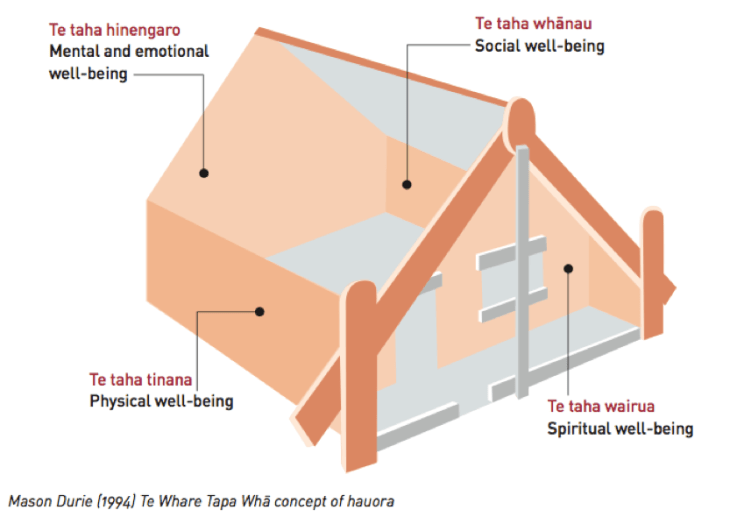Section outline
-
HAUORA HINENGARO – Mental Health Hub
HAUORA HINENGARO – Mental Health Hub
We are fearfully and wonderfully made in the image of a loving God, and yet this world is not yet free from disease, sin, and suffering. Many of us have struggled with some kind of mental or emotional health or know someone who has. We wanted to share a few thoughts and some resources for you to consider during your time of study – to both encourage and support you along the way.
A few words from Bradford Haami (Pou Amorangi - Māori Director)
The Māori word for mental health is Hauora Hinengaro. Breaking down these words, Hauora means the living (ora) spiritual essence (Hau – which also means wind of the spirit) which today refers to health and Hinengaro means the woman (Hine) lost, secret, out of sight, undetected (ngaro) which refers to mind, thought, consciousness, mentality. The term Hinengaro is the word for mind in Romans 12:2 and in this case the nature of mentality of the mind is that it is feminine and out of sight or unknowable to the eye. The term health or Hauora makes reference to the spiritual essence being well and alive. So mental health Hauora Hinengaro means the active and well spiritual essence of the unseeable bind. I like the reference that we all have the mind of Christ in 1 Cor 2:16. This is translated Kei a tatou ia te hinengaro o te Karaiti.
In Whare Tapa Wha (four sided house) this aspect of humanity is only one of four areas of life that speaks of Holistic Wellbeing.

A few words from Lisa Spriggens, Head of Counselling
Te Whare Tapa Wha is a simple and generally well known model of health and wellbeing which shows the importance of care of the mind – te taha hinengaro. How do we nourish our minds and how does this effect the wellbeing of other parts of ourselves? This model reminds us that we are whole, embodied beings and that we need to attend to all aspects of ourselves in order to be well.
A few words from Dr Richard Neville, Senior Lecturer, School of Theology
A faith that reaches beyond externals to the inner life cannot help but be concerned with mental health. And this is all the more so given that Scripture long ago (Genesis 6:5) recognised the human heart is flawed in a way that only a divine work can finally remedy (Deuteronomy 30:6). Ordering our inner lives is no easy matter, and for some of us the challenge may be overwhelming. Perhaps some consolation can be taken from the fact that Scripture recognises this challenge, and that an essential feature of God’s grand plan of redemption is to fix what’s broken all the way to the core of our being (Ezekiel 36:26).
*See below for the full article from Richard Neville about The Bible and Mental Health
-
Four PhD students engaged a clinical psychologist to help them navigate an uncertain time in their studies. They share their findings here.
-
We’ve all got mental health - how’s yours? So maybe you’ve got a study plan. But what about a mental wellbeing plan?
With that in mind, the Mentemia journey began with a clear goal. Everybody better, every day.
